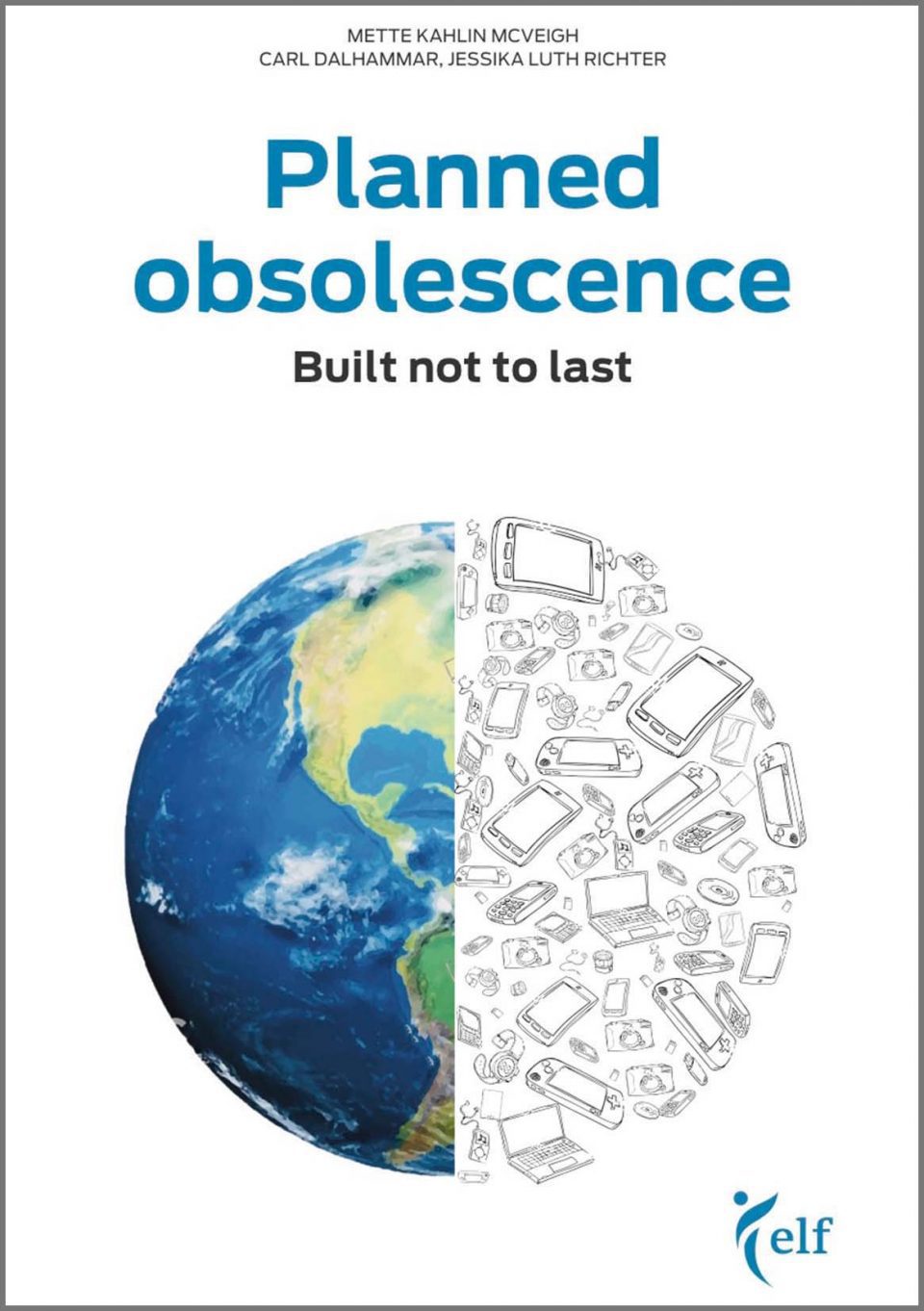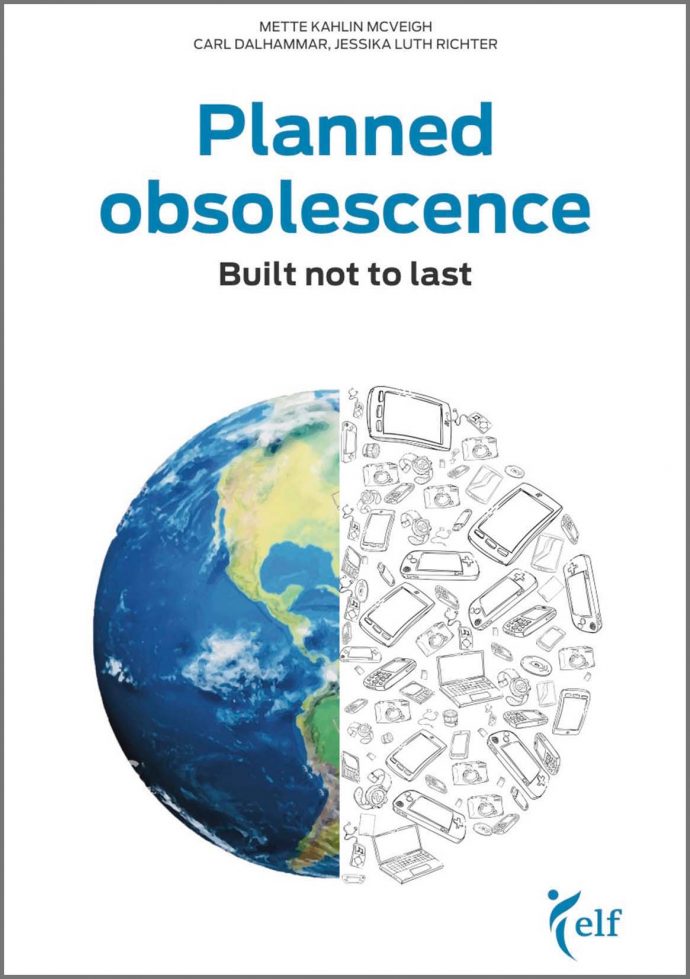Year: 2019
Authors: Carl Dalhammar, Mette Kahlin McVeigh and Jessika Luth Richter
This report gives an overview of the concept of planned obsolescence and offers several examples of products and business practices which are affected by planned obsolescence. Planned obsolescence is directly linked to climate change as purposely designing products that stop working, works less well, or cannot be repaired before the end of its expected lifetime, is resource-inefficient. As such, attention is drawn to the environmental consequences of planned obsolescence and the conflict between the phenomenon and the transition towards a circular economy.
The transition towards a circular economy is crucial to achieving the goals set up in the Paris agreement to keep global warming to well below 2 degrees Celsius. The report gives examples of current legislation and business models aimed at solving the issue of planned obsolescence. This report also gives several recommendations on how to counteract the negative effects of planned obsolescence based on the problems described.

